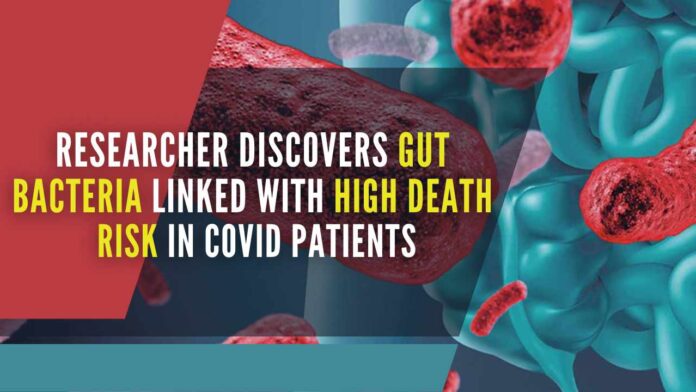
The unique impact of COVID-19 on human gut microbiome research
A new study, led by an Indian-American researcher, has found differences in gut bacteria and metabolites among COVID-19 patients admitted to the ICU, offering possibilities for preventing future deaths.
According to Bhakti Patel, a pulmonary and critical care specialist at the University of Chicago Medicine, differences in the gut microbiome are linked to increases in the risk of death in COVID-19 patients with respiratory failure.
Patients who suffered progressive lung failure and died had more of a group of bacteria called proteobacteria than patients who recovered. These patients also had lower levels of secondary bile acids, and less of a metabolite called “desaminotyrosine“.
Conversely, the patients who improved had higher levels of secondary bile acids and more “desaminotyrosine”.
It’s still too early to tell, but according to Pamer, the microbiome and the metabolites contribute to recovery from a severe respiratory infection.
The findings could open a window for giving patients probiotic treatments containing the right strains of bacteria to produce protective metabolites.
“This study shows that there was some interaction between their microbiome health and how they recovered from their infection,” said Patel in the paper published in Nature Communications.
Bhakti and Matthew Stutz, who was a critical care fellow at the time, wanted to study the gut microbiome of patients admitted to the ICU to see if it could help them understand why some patients recover and do well after discharge from the hospital, and others continue to suffer from debilitating complications.
“We were trying to tie together factors that might lend itself to a biologic explanation of why patients get disabled after surviving an ICU stay that goes beyond just the stuff that we do that could have complications,” Patel added.
[With Inputs from IANS]
PGurus is now on Telegram. Click here to join our channel and stay updated with all the latest news and views
For all the latest updates, download PGurus App.







